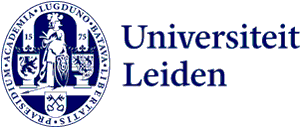
LeidenASA Annual Meeting: Leiden-based Africa research in the spotlight
The Leiden African Studies Assembly (LeidenASA) held its Annual Meeting on 12 December. LeidenASA is the network of Leiden based Africa-researchers. Fifteen researchers gave pitches on their projects, and sketches of Leiden University's Africa strategy were outlined.

Leiden University has more than 170 scholars (including PhD candidates) who work on Africa-related research and education, based at the various faculties or the African Studies Centre Leiden. David Ehrhardt, Chair of LeidenASA and associate professor at Leiden University College, welcomed the participants in the Museum of Ethnology.
Goldmining and port city regions
The afternoon was kicked off with two presentations by LeidenASA members about their recent projects. Sabine Luning (Anthropology) highlighted her just-finalised project Gold Matters that deals with small-scale gold mining. The project focused on integrated comparative sustainability tracking between South America, West Africa and East Africa, in which researchers have worked together with goldminers. Connections were also established between researchers and artists, such as filmmakers and photographers. Another project, in which Sabine Luning has just started to participate, is Port City Futures, a Leiden-Delft-Erasmus (LDE) project that investigates port city regions, in particular exploring areas where port and city activities occur simultaneously and sometimes conflict.
Next was a video giving an impression of Mirjam van Reisen’s work on Fair Data Science. Her project VODAN-Africa (Virus Outbreak Data Network) aims to address several issues in health data management across the African continent.
Digital media, remittances, and beekeeping
The then following 2-minute pitches of researchers showed the broad spectrum of Africa-related research that is being done at Leiden University: from the role of digital media in conflict regions (DDMAC, Luca Bruls/Mirjam de Bruijn), to (quality) jobs in Africa (Stefano Bellucci), remittances (Mohamed Muse and Matthew Hoye with separate projects), skateboarding subculture in Cape Town (Konstantin Valkov), the linguistic structure of greetings across Southern Africa (Hilde Gunnink), digital solutions for rural beekeepers in Uganda (Caspar Swinkels), Swahili Literary networks in the 20th-century Indian Ocean (Annachiara Raia), plans for a Leiden University African student scholarship programme (Emily Strange), and plans for a ‘research waste clean-up’ in Matare, Kenya, because of impact-less research saturation (Caroline Archambault, partnering with LDE and International Centre for Frugal Innovation). For an overview of all presented projects, see a compilation of all powerpoints.

Combatting invasive species
Three winners of seed-funding by LeidenASA shed light on new projects they are working on. Carolien Jacobs (VVI) outlined the project Should I stay or should I go: In search of secure land tenure in an insecure climate, which seeks to find out what land-related factors impact on people’s decision to either migrate or not in connection to climate change, starting in Ethiopia. Emily Strange gave a vibrant introduction to the project Restoring the Rangelands through Collective Biocontrol: a socio-ecological approach to combat invasive species in the SOKNOT region (Southern Kenya, Northern Tanzania). And, finally, Armin Cuyvers unfolded the plans for AfReCA: Co-creating the African Regional Cooperation Agenda, a project - led by Chibuike Uche - which will work together with universities in South Africa, Kenya, Ghana and Rwanda, as well as with regional communities like ECOWAS, SADC and the AU.

‘Africa hub’
The afternoon was concluded by Wessel Meijer (Senior Policy Advisor International Affairs) and Marc Holtkamp (Senior Advisor Strategic Collaboration) on Leiden University's plans for an Africa strategy. The idea is to establish an ‘Africa hub’ for the whole university, to bundle interdisciplinary Africa knowledge for more impact, to stimulate research and education exchange with Africa, and to establish strategic partnerships with African knowledge institutes and other relevant partners. The integration of the Africa strategy policy in Leiden's Internationalisation Agenda is due to take place in the course of 2023.
During the networking part of the afternoon, many useful connections were made between researchers that discovered starting points for further collaboration. They will undoubtedly join forces in the coming years.
See an overview of all LeidenASA members (pdf)
Photos
Top photo: Sabine Luning
Upper left: David Ehrhardt
Lower right: Emily Strange
Lower left: Marc Holtkamp
